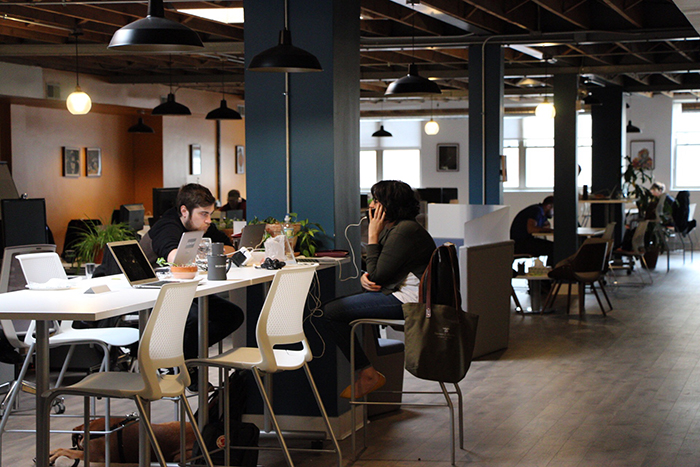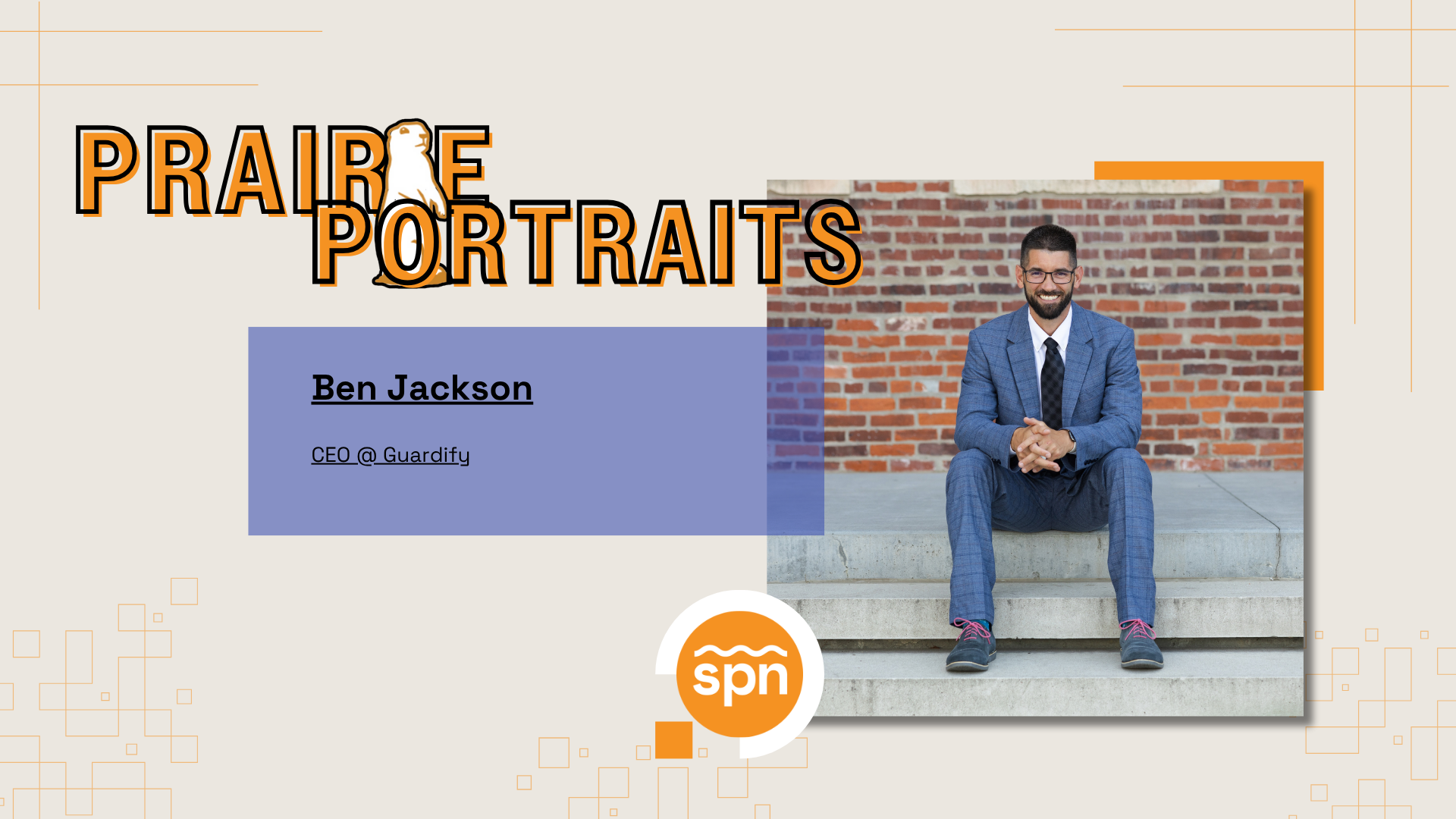In a city like Chicago with a nearly endless choice of coworking spaces, finding the right one that fits a startup’s needs, wants and values is definitely possible, if not a bit challenging. The Heartland Innovation Road Trip made two stops in Chicago on Thursday to tour coworking spaces with significantly different visions.
Chicago’s coworking space most known throughout the region is perhaps 1871. Founded in 2012 and located inside The Merchandise Mart, 1871’s initial goal was to support Chicago’s digital startup community.
Since then, the 150,000 square foot facility has become a hub for the city’s technology and entrepreneurial ecosystem and is home to the headquarters of nationally recognized accelerators, industry-specific incubators, tech talent schools, the Illinois Science and Technology Coalition and university offices.
A city the size of Chicago can support something like 1871, but some entrepreneurs still yearn for a smaller community feel when it comes to a coworking space. That emphasis on community is something Second Shift Chicago does well.
Located in the residential neighborhood of Logan Square, Second Shift Chicago is a community-focused coworking space that was voted Best Coworking Space 2017 by The Chicago Reader.
Second Shift’s mission is to support, promote, and connect its members while driving positive social impact in their neighborhood.
“There’s a lot of physical room to roam in terms of the layout, the structure, and the ecosystem [of Chicago],” said Levi Baer, Cofounder of Second Shift. It’s a huge city, there are tons of resources and events. […] I think we are starting to see this acknowledgment of collaboration as a viable way of doing business.”
Baer sees Second Shift as a “porous” coworking space, meaning that it’s friendly and collaborative, and accessible to the outside community through events for those who aren’t members. Baer also doesn’t see his space as a competitor to places like 1871 because they’re serving a different audience.
“I really thought it was cool that they don’t even look at 1871 as a competitor,” said Christina Oldfather, Director of Innovation and Entrepreneurship Lincoln Partnership for Economic Development. ‘They know that their niche is a gap in the community and they stepped in to provide that.”
Oldfather said that in a city the size of Chicago, multiple entry points are important for different levels and types of entrepreneurs and business owners. That’s something that Baer also believes in.
“My personal bias is there’s too much emphasis on tech. I love the idea of entrepreneurship being a thing that is fashion or food for kids in elementary schools,” said Baer. “I’d love to recognize more of the players in the field, and what entrepreneurship means to everyone.”
Rich Claussen, Ambassador for Innovation and Entrepreneurship for Prosper Lincoln, was struck by Baer’s ideas of porousness and inclusion.
“What I took away from the concept of being ‘porous’ is that yes, we have to make money, we have to be reliable and act like a business today if we want to be a business tomorrow, but we also need to envelop ourselves in our neighborhood, our community, and we need to be open and inclusive without being exclusive,” said Claussen. “They want to be inclusive [and] they want to make that offer or that opportunity available to anybody who wants to build something.”
Rena Valentino, Executive Director of FUSE in Lincoln said she saw a lot of things that she could relate to FUSE.
“I love that it is a community-driven coworking space, that’s definitely the niche of their space,” said Valentino. “[At FUSE], we are very community oriented but are also moving into more of a shared workspace with established and larger teams. So how do we continue making that community feel even as we are moving into also that larger focus?”
Obviously, Chicago is doing community and coworking really well, but what areas are there that the city could improve upon?
“I think both Chicago’s biggest strength and weakness is we compare ourselves to New York, LA or San Francisco,” said Brian Park, Founder of Chicago-based Nabee Socks. “I think that helps us a bit in that we overcompensate by representing Chicago with more pride. We want to take more ownership of our city and therefore have a lot more community-based things where we can all rally around.”
Park said that collaboration is simple and easy, but the constant comparison to other cities isn’t going to service the city in the long run.
John Kolaczynski, Partner at Cub Investments, thinks Chicago has an advantage over a city like San Francisco, where he’s worked and said the city focuses a lot on ideation.
“San Francisco felt very insular where I feel Chicago is more broadly connected,” said Kolaczynski. “There are a lot of heritage industries, and there is a lot of history in Chicago of companies growing up from the very beginnings to Fortune 1000 and Fortune 500 companies. I think Chicago is very good at facilitating innovation within those things.”
Kolaczynski said that Chicago is a great place to be a part of a team that’s going to make real products, and it has all the attractions of a big city without the hostilities.
Brian Ardinger, Founder of Lincoln’s NXXT and InsideOutside.io, said he was refreshed by both Chicago’s and Iowa’s startup communities, and seeing the openness and the inclusiveness that startup leaders around the country are fostering.
“Anytime I get out to other communities I’m always refreshed and revived to know that there are people out there doing the right things, building the right things, and helping others build that,” said Ardinger.
He said he’s appreciated people taking time out of their day to be open and inviting towards the Road Trip crew.
“It’s a give first mentality that actually seems to spur so much more,” said Ardinger. “You don’t always know when that’s going to come back to you but that’s what continually drives me to be part of the community and continually be part of other communities. How can we share and grow and make things happen?”
––
Christine McGuigan, Managing Editor of Silicon Prairie News with on-location reporting by Brian Lee, Managing Director of Silicon Prairie News






One response to “Chicago’s coworking spaces are building more than startup careers”
[…] Chicago’s coworking spaces are building more than startup careers – SPN […]